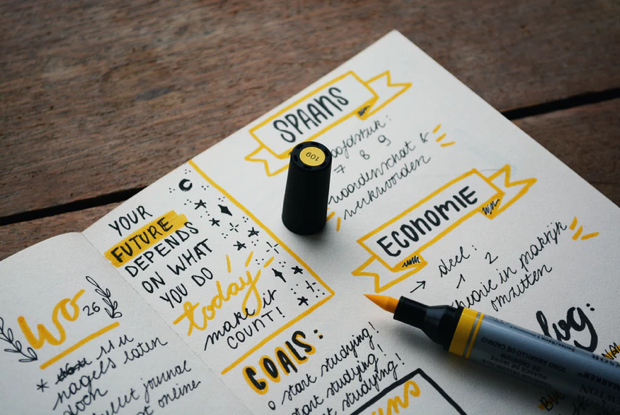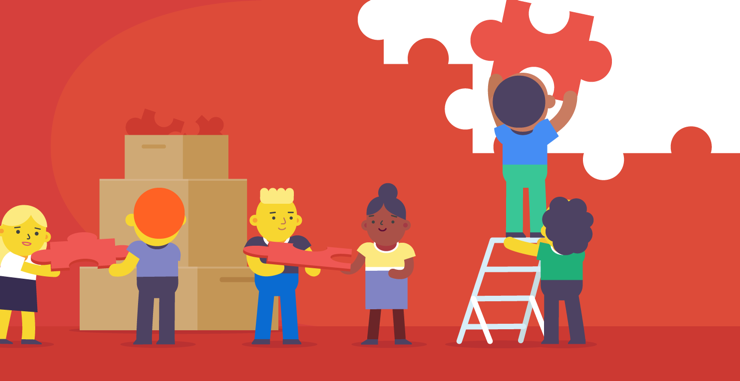Whether you are having a teamwork online or in-person, it is the key to successful business in most companies. Why? Let me explain.
All companies unite diverse areas into large and small groups. Joining the efforts of all team members makes it possible to complete tasks most effectively. When people collaborate, they often bring their unique strengths and perspectives to the table, creating a more dynamic and innovative environment. Each individual contributes a piece of the puzzle, and together the team can tackle challenges that might seem overwhelming for one person alone.
Teamwork often pays off much better than isolated efforts. It is more than the division of labor; it is a means to achieve the integrated energy and creativity of the team are greater than the sum of its parts. Be it brainstorming ideas, troubleshooting problems, or making deadlines, teams that work well create value that extends beyond their projects. With proper management and the right strategies and tools, any team can work smoothly and achieve better results.
And let’s not forget that teamwork also allows for a lot of personal growth: communicating, adapting, and the development of leadership are all real benefits to working in an environment like this.
The Importance of Teamwork Skills
A manager provides the benchmark for teamwork skills and an approximate course of action. If the manager doesn’t set clear roles for each employee in time, the mechanism of team collaboration will begin to falter and, in the end, will fail. The company’s efforts to hire new employees or work with existing teams will then be futile.
Beyond setting roles, the manager should provide a comfortable environment where everyone is free to communicate and share ideas or solve any challenges. Good teamwork comes about when there is a foundation of trust that can be built by consistent communication, fair treatment, and recognizing each member’s contribution to the team.
Teamwork skills are not just about getting the job done, but also about how people work together effectively, communicate, and adapt to change. For example, in times of high stress, a team with strong adaptability can more easily adjust to changing priorities. Other important teamwork skills include conflict resolution and emotional intelligence, which go a long way to maintaining harmony and productivity in the group.
What can you do to prevent such situations on your team? Here are the best ways to master teamwork skills:
1. Setting clear goals

The most important thing while building a team is setting clear and concise goals. It is crucial for any team leader to come up with such goals as early as possible to help team members understand their role in reaching common results.
The best results are achieved when the entire team participates in the goal-setting process. When the team has a common target, all team members are motivated to work. They are ready to make every effort to reach the milestones, collaborating with their manager. Goals give the direction of work to the team and make it easier to achieve progress.
Besides, setting measurable and time-bound goals will significantly improve the effectiveness of teamwork. Establishing such structures as SMART goals will bring clarity and accountability. For instance, instead of the general statement “increase team productivity,” one can make a SMART goal: “To enhance project delivery time by 15% within the next three months.” This helps the teams to focus their efforts and measure progress accordingly.
Breaking large goals down into smaller, actionable steps also has its advantages; it helps team members understand how their efforts immediately help their businesses while they continue through the project life cycle.
2. Assigning tasks to team members

If a manager doesn’t assign tasks to team members in time, the end result of the work may be unpredicted. The management should also consider the professional skills of the employee and their work experience, understanding that there are tasks that one person can do well while another person can’t do at all. That’s why a good manager should carefully monitor the results of each individual member. If one of the employees can’t carry out the task, a team leader should be ready to solve the problem to enhance teamwork skills.
As well as matching work to the right professional skills, managers should also get people from different teams to work together on challenging tasks. These are tasks somewhat beyond the comfort zones of employees; those that encourage them to master new skills and expand professional competence.
To avoid potential bottlenecks, consider having a backup plan or secondary assignments for critical tasks. In this way, if one team member runs into an unexpected problem, another can seamlessly step in without jeopardizing project deadlines.
Routine check-ins complete the picture. Short one-on-one or team meetings ensure that work is in line with capacity and that potential problems are identified before they escalate. These touchpoints build accountability while valuing each team member.
3. Promoting collaboration and interaction

Even if all team members know exactly what they are doing, it is always better to collaborate. The manager will also benefit from keeping in touch with the whole team. The simple way to interact is to put a team together at least once a week for sharing new information, discussing major hassles or minor bumps on the road to success, and acknowledging individual and team achievements.
First, such an approach may allow every worker to be aware of progress and improve the team’s interaction. Sometimes a team’s members cannot all meet in the same location. In this case, team messengers like Chanty, video conferencing tools, or even email will come in handy.
Thinking of having a teamwork online? That’s when you need these tools.
The proper tools help the whole team receive information in time and seamlessly exchange ideas or experiences with each other. That’s why teamwork includes constant communication, collaboration and finding a common language with colleagues cause otherwise it may lead to the feeling of emposter syndrome among the team members.
Here are some great tips for managers to communicate with employees and increase team productivity:
- Create favorable working conditions. An employee’s productivity depends on many factors: temperature in the working room, light level, noise level at work, etc.
- Develop a timeline. Having a clear understanding of project roles allows the manager to develop a timeline. This plan shows how much time and efforts a task will take.
- Set the deadlines for achieving goals. With a clear deadline, team members will concentrate better and use their resources more efficiently.
- Provide cash reward. It would be a good idea to offer an employee the opportunity to earn some extra money. It is like an appreciation for certain achievements at work.
4. Giving feedback

Feedback generally means a response to the action. Your task as a manager is to provide well-defined examples and facts, not some abstract, emotional remarks about teamwork.
It is important to be truthful, give constructive criticism and provide clear guidelines for improvement. Why is it so important? Because timely feedback may improve the quality of the work and lead to the further development of teamwork.
If your team achieved a common goal, don’t forget about positive feedback of the work. It is always better to find positive aspects first. Encourage your employees.
You don’t need to overpraise a worker or to come up with non-existent merits. Just give examples of the achievements what you liked the most.
That’s how feedback becomes, in a sense, the result, where a manager summarizes achievements of the team and provides recommendations on how to improve teamwork or teamwork skills.
5. Considering not only professional but also personal interests

Undoubtedly, the team is a combination of experts. However, if professional interests within the team coincide, and personal interests are completely opposite, the managers would need to do extra work to remove the tension in the air. Difficulties may arise from different views, ideas, thoughts to solve the working tasks.
What if the conflict is ripe for something and the results of the teamwork skills are on a decline? Find out the real reasons immediately. Ask what exactly people expect from each other, from work, from the company or their manager? In this case, conflict resolution is a matter of time, and the decline in performance is temporary.
Keep in mind that it will be cheaper and easier to find the cause of the conflict and settle the issue, rather than form a new team and wait for people to work together better. Solving teamwork skills and other teamwork related problems will help to improve the work, establish relationships and understand the expectations of the employees.
Conclusion
The teamwork skills are important in any area of business. If the team works smoothly and productively, it won’t take long to achieve great results. Each company has its own ways to improve teamwork online or in-person. Personally, I recommend to focus on the following tips to level up the teamwork skills in your company:
- setting goals
- distributing responsibilities
- promoting cooperation
- providing feedback
- finding out more about the individual interests of your employees
It is crucial to foster a culture of trust and openness. Teams that trust each other and their leaders are more likely to share ideas, work well together, and deal constructively with challenges. Regular check-ins, both formal and informal, can help improve communication and avoid misunderstandings that may derail teamwork. Encourage a culture where everyone’s voice is heard and their contribution is valued; this leads to more engaged employees and a more cohesive team in general.
Besides, the introduction of team-building virtual and physical-can be a good way to foster interpersonal relationships and break barriers. This does not necessarily have to be some form of pre-defined exercise; even casual social events, team lunches, or collaborative projects can be of immense help in building bonds and improving the dynamics within the team.
What other ways of improving teamwork online or in-person worked for you? Feel free to share in the comments!









